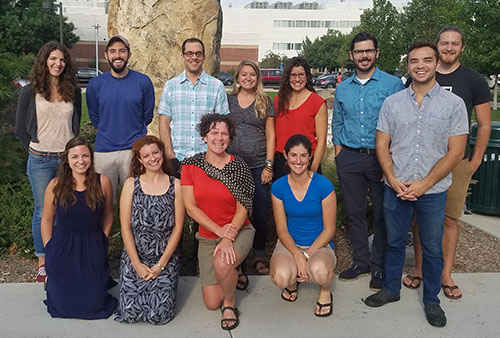
Historically, scientific disciplines in academia have been "siloed" by institutional divisions. Parts of different colleges and departments, scientists and researchers struggled to communicate. Yet we know that many research questions can only be answered through inter-disciplinary research.
The HES Initiative, including the recruitment of new faculty to Boise State University, was created through the support of Idaho's NSF EPSCoR Research Infrastructure Improvement (RII) Track-1 award, Managing Idaho's Landscapes for Ecosystem Services. It directly supports the vision and goals of Idaho's Strategic Research Plan for Higher Education and fosters a vibrant academic research culture. The HES Initiative brings together researchers of human systems and environmental systems - sociologists, political scientists, biologists, ecologists, and more - to study Idaho's most pressing issues, while also utilizing new capabilities for national and global impact.
The HES Initiative is a hub for researchers in many disciplines to combine their skills and knowledge to solve complex research questions with direct relevance to society. The Initiative lays the foundation for a transformation in university research culture to foster teamwork, creativity, and generation of new knowledge on what people do and why, how they affect the environment, and how the environment in turn affects them.
Boise State University has created a unique new initiative within the University, the Human-Environment Systems (HES) Initiative. It brings together researchers in both the physical and social sciences to work together to answer fundamental questions about how the environment and human societies are interconnected.
